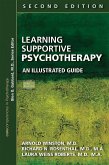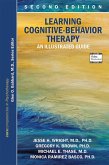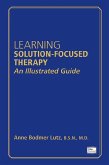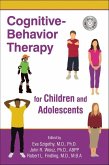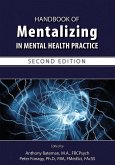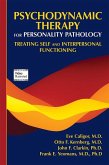The traditional practice of psychiatry has been focused on reducing or eliminating distressing, unwanted symptoms. But what if the key to health and well-being is not to be symptom free, but rather to function effectively in life even when symptoms are present? What if symptoms serve an adaptive and motivational function, rather than being signals of a latent illness? What if the key to personal health is the ability to accept symptoms for what they are and to do what matters in life at the same time? This is the underlying proposition of Acceptance and Commitment Therapy (ACT), and this book -- a collaboration among six clinicians from diverse practice backgrounds -- is the first to systematically describe the principles and practices of ACT as they apply to psychiatric assessment, case analysis, and treatment.
The guide begins with an in-depth analysis of the ACT model, from its scientific origins in the study of the functions of human language to a fully elaborated model for clinical assessment and intervention and outlines the clinical benefits of ACT in everyday practice.
The second section of the book shows the reader how to conduct a streamlined assessment of the patient's life context, how to detect and intervene with the patient's unworkable emotional and behavioral avoidance strategies, and how to blend the use of medication treatment and behavioral interventions in a way that augments the beneficial effects of both approaches.
Chapter-length examples in the third section discuss how to deliver ACT in an ambulatory psychiatric setting, in a hospital consultation-liaison service, and in an inpatient psychiatric context. The section also includes a chapter examining the all-important issue of teaching ACT to psychiatric residents as well as affiliated health professionals working in medical or psychiatric treatment team contexts.
Learning Acceptance and Commitment Therapy uses a diverse array of case examples and clinical dialogues to offer readers a real-life view of the methodology in practice. Each chapter also includes additional reading resources to pursue should a particular theoretical or applied clinical concept create a desire to learn more. Additionally, readers have unlimited access to an online instructional library that includes video demonstrations of core ACT clinical strategies "in action" as well as a host of written practice support tools and worksheets.
This book is a must for clinicians who want to expand their ability to improve clinical outcomes for the wide range of patients seen in clinical practice.
The guide begins with an in-depth analysis of the ACT model, from its scientific origins in the study of the functions of human language to a fully elaborated model for clinical assessment and intervention and outlines the clinical benefits of ACT in everyday practice.
The second section of the book shows the reader how to conduct a streamlined assessment of the patient's life context, how to detect and intervene with the patient's unworkable emotional and behavioral avoidance strategies, and how to blend the use of medication treatment and behavioral interventions in a way that augments the beneficial effects of both approaches.
Chapter-length examples in the third section discuss how to deliver ACT in an ambulatory psychiatric setting, in a hospital consultation-liaison service, and in an inpatient psychiatric context. The section also includes a chapter examining the all-important issue of teaching ACT to psychiatric residents as well as affiliated health professionals working in medical or psychiatric treatment team contexts.
Learning Acceptance and Commitment Therapy uses a diverse array of case examples and clinical dialogues to offer readers a real-life view of the methodology in practice. Each chapter also includes additional reading resources to pursue should a particular theoretical or applied clinical concept create a desire to learn more. Additionally, readers have unlimited access to an online instructional library that includes video demonstrations of core ACT clinical strategies "in action" as well as a host of written practice support tools and worksheets.
This book is a must for clinicians who want to expand their ability to improve clinical outcomes for the wide range of patients seen in clinical practice.
Dieser Download kann aus rechtlichen Gründen nur mit Rechnungsadresse in A, D ausgeliefert werden.



